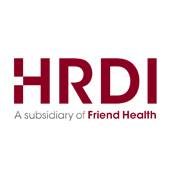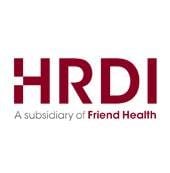Prentice Place
Drug Rehab Center in Chicago, Illinois
Prentice Place is a prestigious addiction treatment center in Chicago that provides individualized evidence-based residential and outpatient programs with various holistic and alternative treatments to help individuals overcome substance use and maintain their addiction-free lifestyle with the support of experienced professionals and resources for their family and loved ones.
About This Illinois Facility
Prentice Place, located in Chicago, Illinois, is a halfway house dedicated to helping adult men in recovery who are exiting correctional facilities. With a focus on supporting successful community reentry, Prentice Place offers specialized programs for young adult males and men with co-occurring addiction and mental health disorders.
- 12-step focused individual, group, and family counseling sessions are provided to support residents in their recovery journey.
- Recovery-focused life skills training, including courses in coping, self-care, anger and stress management, wellness, problem-solving, and relapse prevention, equips residents with essential tools for success.
- Aftercare support services, such as transitional support, peer coaching, and referrals to medical, mental health, and social services, are designed to prevent recidivism and promote sustained recovery.
Prentice Place is state-licensed and SAMHSA-accredited, ensuring high-quality care for its residents. They accept various payment options, including private insurance, military insurance, self-pay, and financing.
The facility offers a comprehensive approach to addiction recovery, addressing not only substance abuse but also co-occurring mental health disorders. Treatment modalities include individual therapy, group therapy, family counseling, and life skills training, all aimed at fostering a strong foundation for long-term recovery.
Genders
Ages
Modality
Additional
Accreditations
State License
SAMHSA
Conditions and Issues Treated
Substance abuse typically leads to addiction, which requires specialized treatment programs at Prentice Place to address. Many people benefit from inpatient drug rehabilitation, which includes inpatient acute care and residential rehabilitation. Other levels of care include intensive outpatient therapy, individual counseling, and support groups. Family therapy is also an essential part of treatment for substance abuse.
A combination of treatments is often needed to treat drug abuse issues effectively. In the case of drug abuse, there is no easy answer or one-size-fits-all cure.
Opioid addiction treatment helps people addicted to opioids in Illinois curb their drug use. The selection of a treatment setting depends on the severity of the addiction. Mild cases are usually treated in outpatient facilities; severe cases need hospitalization or treatment in a residential facility. Doctors use medicines along with counseling and behavioral therapies to treat the addiction. The treatment includes medication, counseling and therapy. It can also include group counseling, individual counseling and family counseling.
People with dual diagnosis have coexisting addiction and a mental disorder. 9.2 million US adults had a co-occurring disorder in 2018, so not just limited to Illinois residents. Best treatment combines medication, psychotherapy (talk therapy), support group, and inpatient rehabilitation. Sometimes, complementary therapies – yoga, massage, and acupuncture – may also be used.
Levels of Care Offered at Prentice Place
This center offers a variety of custom treatment tailored to individual recovery. Currently available are Aftercare Support, Drug Rehab, Dual-Diagnosis, Intensive Outpatient, Outpatient, Sober-Living / Half-Way, with additional therapies available as listed below.
Prentice Place offers an Intensive Outpatient Program is for those who need intensive care but prefer to spend the majority of their time in the comfort of their own home. The rehabilitation services differ in length and intensity. They are customized to meet the needs of the patient.
Outpatient treatment plans cover diagnosis, detoxification, management, and counseling. They are a popular option for those who have graduated from inpatient facilities. Services in Illinois include medication-assisted treatment (MAT) and individual and group therapy.
Sober living home provides a drug and alcohol-free environment for people in Chicago trying to stay sober. The atmosphere in SLH is less restrictive than in inpatient rehab. Members have to follow many rules, including not drinking and using drugs and paying rent and bills. There is no limit for the minimum or maximum period of stay, but as long as you stay in the house, you should follow the rules, as it’s the opportunity for individual and group sobriety.
After treatment, addiction treatment can be frightening for newly sober people. Aftercare support provided by Prentice Place is designed to give resources and help on a continued basis. It can involve finding housing in and around Illinois, setting up 12-step meeting groups, continued medical monitoring, and counseling.
Therapies & Programs
Family therapy is a set of therapeutic approaches that assumes that the entire family is a system. It utilizes the strengths and resources of the family to help the patient refrain from resorting to substance abuse. The impact of substance abuse is not just on the patient but on the entire family. Family therapy ensures that the patient gets adequate support from the family members after the treatment making the recovery process sustainable
- Family therapy guides all the members of the family to help the patient.
- It helps to repair relationships and improve communication between family members.
- It helps to keep the patient engaged and motivated throughout the treatment.
Group therapy is an important tool in recovery. Finding a peer group in Chicago, IL and others who relate to your situation is a fundamental tool for recovery at Prentice Place. Addiction tends to lead to isolation and feelings of uniqueness. The accountability and friendship that is found in group therapy can be more effective than any single other treatment approach. This is generally introduced early in recovery and is recommended as a lifetime treatment habit.
Trauma therapy is a way of addressing trauma while in a safe situation in order to heal. This may involve Prentice Place managing individual or group counseling or both. Other forms of therapy have been proven to assist in healing past traumas.
Negative feelings are common in substance abuse disorders. If not recognized, they can cause co-occurring disorders. CBT involves strategies that help to change the thinking and behavioral pattern. It can be administered as a monotherapy as well as a part of combination therapy.
Rehabilitation is not just limited to bringing an individual out of addiction and achieving sobriety. It is considered complete only when an individual starts leading a normal and balanced life. Life skill therapy focuses on the various skills that help an individual to lead a normal life. Patients often do not take care of themselves, struggle professionally, and withdraw from social interaction due to addiction’s physical and emotional disturbances.
Life skills therapy helps people in Illinois improve various personal, professional, and social skills such as cooking healthy meals, maintaining proper hygiene, budgeting, decision-making, time management, regulation of emotions, and effectively resolving interpersonal conflicts.
The first three steps depend on the patient, so they are more specific and situational. The succeeding four steps center on practical issues brought on by substance abuse. Steps 8 and 9 deal with the social and emotional repercussions of addiction, encouraging patients to make amends to people they have wronged. These are followed by two steps revolving around the further exploration and reinforcement of Steps 1 to 9.
The last step requires an individual to extend a helping hand to people who are still in the early stages of their recovery.
Payment Options Accepted
For specific insurance or payment methods please contact us.
Is your insurance accepted?
Ask an expert, call (888) 674-0062
Additional Details
Specifics, location, and helpful extra information.
Chicago, Illinois 60628 Phone Number(773) 928-7206 Meta DetailsUpdated April 15, 2024
Staff Verified
Patient Reviews
There are no reviews yet. Be the first one to write one.
Chicago, Illinois Addiction Information
In 2016, more than 2,350 Illinoisans died from drug overdoses. More than 5,500 deaths annually occur in Illinois due to the abuse of alcohol and other drugs. 7.17% of Illinois residents reported using illicit drugs in the past month (2018). Substance abuse costs the state approximately $3.5 billion every year.
Drug misuse can lead to other serious health problems, including HIV/AIDS or hepatitis C infection and liver disease. Chicago's main drugs of abuse include heroin, cocaine, and methamphetamine. Field sobriety tests can be used to determine if someone is driving under the influence of drugs or alcohol. There are about 872 drug treatment centers in the city, and the number of people seeking help for addiction continues to rise.
Treatment in Nearby Cities
- Rock Island, IL (153.0 mi.)
- Canton, IL (117.6 mi.)
- Dixon, IL (96.0 mi.)
- Lake Bluff, IL (42.2 mi.)
- Flora, IL (213.8 mi.)
Centers near Prentice Place
The facility name, logo and brand are the property and registered trademarks of Prentice Place, and are being used for identification and informational purposes only. Use of these names, logos and brands shall not imply endorsement. RehabNow.org is not affiliated with or sponsored by Prentice Place.







